The GET360 Solar Panel System Difference
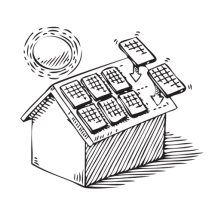
STEP 1
Solar Power
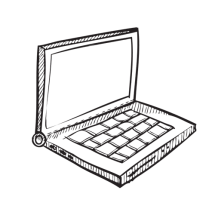
STEP 2
24/7 monitoring
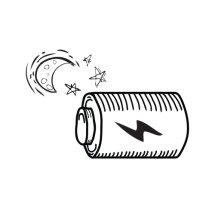
STEP 3
Battery Night Use

STEP 4
$0 power bill
*Requires battery installation
If I searched Google for “solar power deals qld”, can we help you?
Absolutly, We at Green Energy Technologies understand that there is a high possibility that you have arrived at our page becuase you searched exactly, or something similar to solar power deals qld. The main reason this occurs is becuase our company has specificlly told Google that people who are looking for something related to “solar power deals qld” can be assisted and serviced by our professional, qualified and experineced team. We specificlly provide these services throughout Central & North Queensaland from our local offices within Brisbane, Mackay, The Whitsundays & Townsville.
Invest now, save forever!
Is your electricity bill taking over your life?
Stop paying too much. From solar panels to green energy batteries to full Solar System solutions – If you are looking for solar power deals qld in your local area, Green Energy Technologies has the tools to help you wave goodbye to sky-high power bills for good.
With a local office Green Energy Technologies can provide unparalleled service and support Locally , we’ve got the local experience and knowledge to free you from your power bill and save you money.
Stop paying too much!
Get a quote today for anything related to “solar power deals qld” with solutions from Green Energy Technologies for your home or business.
solar power deals qld
Finding a company that will not only meet, but exceed your expectations is not always an easy task. With so many things to consider you just dont always have time to determine the best option in every case. At Green Energy Technologies, we are always avaialble to answer any quetions and help you achieve the outcome your looking for. Come into one of our local offices either in Brisbane, Mackay, Townsville or on The pictuique Whitsundays for a chat today.
Our Office Locations
At Green Energy Technologies we highly recommend undertaking some simple research to find the best company for your requirements.
Searching “solar power deals qld” on Google will often provide client testimonials providing you with a starting point to see how other people have rated their business and experience. Facebook and websites are other great options to review.
Obviously the information provided is not a guarantee of the same outcome for you, but by reviewing other people’s feedback you can get an insight into how the company operates and what you can potentially expect.
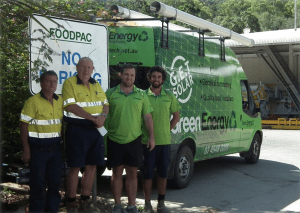
Our power bills were one of our largest costs and with the help of Green Energy Technologies we have been able to lower our power bills which helps our bottom line.
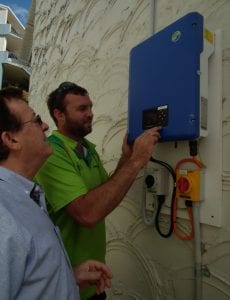
Solar is a great way to alleviate the stress of high electricity costs.
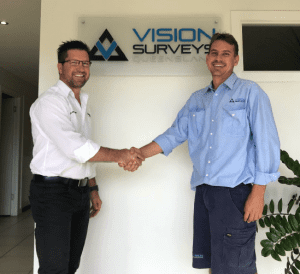
We use a lot of power during the day which is the peak time to get the returns on solar. Dave and the team at Green Energy Technologies put together a fantastic deal based on my business needs with a $0 dollar upfront finance option. The system has reduced our bill to close to zero dollars which means the system will pay itself off in 3 short years. A great investment! Another advantage for me is the fact that I can claim the expense as a tax write off for the business.
Frequently Asked Questions about Solar Power
When installed and maintained correctly solar panels will generate electricity that is worth far more than what they cost to purchase and install. This means they are an investment and not really a cost. In most cases a solar panel system will pay for itself in approximately 5 years and then continue operating, generating free electricity for many more years after that. So in short yes, solar panels are worth it, and no they are not expensive.
Yes, the vast majority of components in a solar panel can be recycled. The traditional recycling techniques for solar panels are quite energy intensive which has sparked much debate over how clean solar panels are. However, more recently there have been many breakthroughs in recycling techniques, and very soon recycling solar panels will be much more cost effective and environmentally friendly. So in short yes, solar panels are recyclable, be sure to select a panel manufacturer that supports the international PV recycling scheme like Hyundai.
The word "sustainable" means it can be maintained at a certain rate or level. Solar Panels have 25 year performance warranties that show they can be maintained at an acceptable level for a very long time. A solar panel does not last forever, so technically at some point it will have to be decommissioned and disposed of. However, as solar panels can be recycled in an efficient way it could be argued that solar panels are very sustainable.
No, solar panels require sunlight to generate electricity, so they will not work at night. Solar panels will also produce much less electricity if they are shaded or it is an overcast day. The confusion surrounding solar panels working at night comes from when a battery system is used. If a battery system is added to a solar system, the excess energy generated by the solar system that is not used by the house or business during the day (when it is sunny) can be stored in a battery and then used at night or when it is otherwise needed. So in short, no, solar panels themselves do not work at night, but a GET 360 Solar System with a battery can provide you free electricity generated from the sun at night time.
Yes, solar panels can be moved from one house to the other. Would you do this? probably not. Why? the installation process is quite labour intensive and costs a good proportion of the total system cost. Removing a system also costs money. A solar system can increase the value of a house, so many people will say that it is much more sensible and cost efficient to leave your solar system behind, to increase the value of your house for sale, and purchase a new solar system at your new house.
No, solar panels do not store energy within themselves, they generate electricity which is carried to an inverter which then supplies this electricity to the house for use in real time at the time of generation. Any excess energy generated that is not used by the house can be fed back into the electricity grid (where a grid connection is available) which your energy retailer should give you a credit for. It is only when a solar panel system is connected to some form of battery that energy can be stored.
A solar panel is made up of many solar cells. Each solar cell is made up of a few layers, one layer is positively charged and has a number of fine metallic strips running through it. Another layer is negatively charged and normally sits at the bottom on a fine metallic sheet. When there is not any sunlight hitting the panel nothing happens in this solar cell. However as soon as photons (light energy) from the sun hit the silicon layers electrons are knocked loose by the photons which are then drawn to the positive layer and carried through the fine metallic strips to provide power to the load and then back to the negatively charged metallic sheet and returned to the silicon layers to be used again. This cycle of electrons creates a direct current (DC) and it is how a solar panel creates electricity.
Solar Panels can create electricity from the sun's light. Producing electricity from sunlight with no harmful by-products is why solar is considered a clean green source of power that is good for the environment. Other sources of power require burning coal or gas to heat water which creates steam which turns a turbine to generate electricity. The burning of coal or gas creates many by-products which are released into our atmosphere and are not good for the environment. Solar Panels do require natural resources and energy to create them, so it is vital to ensure they remain a great source of clean energy by building them well, installing them correctly and maintaining them so they last as long as possible. In addition, recycling them at the end of their life span to recover their elements to be reused again is important to close the clean energy loop.
There are many different types of solar panel, and all have different benefits. The vast majority of solar panels work in a similar way and all require the same sort of maintenance and care to work effectively. The most important thing to consider when buying a solar panel is it's quality and longevity. Solar panels are not expensive but they are not cheap either, investing in them is something you want to do as few times as possible. A good indicator of quality is price, another good indicator of quality is the warranties the manufacturer provides, and how long the manufacturer has been in business. Green Energy Technologies carefully weighs up all of these factors before selling a solar panel, we will only provide our customers with panels that we believe will last the distance and do a good job for our clients.
The solar panels you need will depend on where you are going to put them and the conditions in which they will operate. The solar panels are only part of the whole solar system and it is important you get a knowledgeable sales and installation company to guide you through your options and explain the benefits of each. Green Energy Technologies prides itself of giving you the best options for your situation and taking the time to make sure you are comfortable with your purchase before, during and long after installation.
There are many components that go into making solar panels and sometimes these components will come from many different places. Some companies will have factories or offices in many countries, China is one of the largest manufacturers of solar panels and solar panel components in the world, as such it is going to be very difficult to find a solar panel that has not had at least some part of it made in China. However, with this said Green Energy Technologies does have both Solar Panel and Inverter options from manufacturers whose predominant operations are located outside of China. Don't always go by a solar panel's name to decide if its not from China, Canadian Solar Panels are mostly made in China and are not Canadian at all. If you really want products not made in China, do your research properly, and we at Green Energy are always happy to help you with that research.
Solar Panels can work during a grid power outage. However, it is normally the Inverter and how the system is installed which determines whether or not it will continue working and providing power during a grid power outage. Most inverters rely on power from the grid to operate so will not work during a grid power outage. If backup power is something you are really wanting Green Energy Technologies has options available that will provide you power when you need it.
Yes, many solar panels will work on cloudy days, but the amount of power they generate is directly affected by how much light is hitting the solar panels, so on cloudy days they will produce less power than on sunny days.
Solar Panels have reduced in price significantly since they first came onto the market. This price reduction has slowed down somewhat in the last few years. It is possible solar panels will become less expensive to manufacture and as such become cheaper. It is also possible that more efficient higher quality solar panels will be invented that might cost more. There will always be a range of products available for different prices, it is important to weigh up your options and understand the possible returns on your investment. There are excellent returns on investment to be made with solar panels right now, every day you wait for prices to get cheaper is a day of sunlight that could be saving you money. Green Energy Technologies will be happy to help you to understand the savings you could be making right now, just get in touch with one of our friendly representatives today!
In most cases it is necessary to mount solar panels to your roof in order for them to operate properly. There are a few different ways panels can be mounted to roof surfaces, and most ways require small modifications to your roof. However all solar panel mounting systems must pass stringent engineering standards to be allowed to be installed in systems that will be eligible for the government's rebate. However, it is vital to note that these systems must be installed properly to the manufacturer guidelines to be effective and have the least impact on your roof. Green Energy Technologies staff are highly trained in the Radiant roof mounting system and pay a great deal of care and attention to installing the system correctly to ensure your roof is not damaged and your most valuable assets are protected from the elements.
Solar panels will over time and with new technology get more efficient. The key item to understand is how the term efficiency is used for solar panels. Rather than a performance as in one performs better than the other. For solar panels efficiency is purely about how much power is generated from a certain area. So for example a 500w panel that is 1m2 would be 50% efficient a 250w panel that is 1m2 would be 25% efficient. The below information is very relevant to understanding efficiency. The 2 x 250w panels would produce the same power as the 1 x 500w panel. The 250w panels would simply take up more space. So if you are looking at the benefits of a more efficient panel it is almost all about the size. If you have plenty of space on your roof then efficiency is not really an issue. The other item to consider is most systems are sold on KW and compared in that way so there would be no difference to a 10kw system at 20% efficiency to a 10kw system at 25% efficiency in regards to the output and savings produced. One would simply take up more room than the other. The other consideration is cost. Anything at the very high end of available technology and very high efficiency is generally new, possibly not proven and generally more expensive. With Solar there is about a 20% - 40% premium to be at the very top end of efficiency and generally it will just get you a newer technology with a smaller footprint. This technology will be surpassed quite quickly, so in 1-2 years that possible need to have the best for an investment that will stay on the roof for 10 years may be short lived. It may be a good idea to look at this cost vs efficiency as a longer term investment when it comes to price as there will be no real production benefit.
Solar panels are a tool to self-generate power. On average solar power costs about 5-7cents per kw/hr vs the grid which generally costs between 20-30cents. The key item is to find a business that will show how this 5-7 cents and the time it would take to get your initial investment back will work for your particular home or business and to show you where the savings and benefits are. This is just an example based on cost savings. The other items to consider are the future, security and the environment
There are a few ways to store solar. The most common is in a battery so the power can be used at a later time in the day or at night or saved for an outage. With a battery the home or business uses the solar direct from the panels and if there is any excess this is stored to be used at a time when you need it. The other concept is virtual storage or feed in. This is where in a cost sense you sell power to the grid at a certain rate and then you buy it back at a later time if needed. The virtual storage/ feed in depends on the agreement but generally you will only get about ⅓ to ½ on the feed in vs what they would charge back. This is however a good way to make use of excess solar that you would otherwise not use.
Solar can power the whole house. The key item to understand is that solar works as an assistance with the power grid. Both the gris and solar work harmoniously together. So the solar would take over the grid power whenever it has enough power to do so. It would also work in harmony with the grid where it only has half or none of the power for example at night. SO at times during the day solar would power the whole house but at night without a battery the grid would take over. Going solar is basically layering another service of cheaper cleaner energy over the top of your existing energy provider. It gives you cheaper solar power along with the stability and consistency of the grid.
Solar power works by converting light from the sun into electricity. This electricity can then be used in your home or business instead of using power from the grid. If there is any excess solar production this can be sold back to the grid at the market rate (this is called a Feed In Tariff) The most common process at present to generate solar power is by installing solar panels on your roof which generate DC (Direct Current) electricity. This is then fed into a solar inverter which converts the DC electricity from your solar panels into AC (Alternating Current) electricity. THis process should be carried out by a licences CEC electrician.
The key to understand which solar system you need is the goal of what you want to achieve.
Some of the key goals of solar are, save money, save the environment, power in an outage, energy self sufficient, security and peace of mind.
When you know your key motivators then it is much easier to create the ideal solution for you.
Yes it can. When the system is “on grid” where your home or business has an existing connection to the grid. The solar will work by creating as much electricity as possible. This electricity can power all the items in your home or business with any excess going back to the grid. If the solar is not producing enough electricity or it is night time your home or business will simply draw from the grid. This process is virtual and seamless so there is no physical changeover of technology. The solar and the grid synchronise together and work in harmony.
The best solar system is very simply the one that delivers on your ultimate goal for the longest period of time. We would recommend using this 5 point list to ensure you can judge this for yourself:
- What is my Ultimate goal for this system (eg savings, independence, environmental)
- Analytics. How will I be able to see that Item 1 is being delivered live at any time and over time.
- Products: What products are being used and will they deliver.
- Guarantees: Not to be confused with warranty. Guarantees should lock in item number 1 for as long as possible with someone to be held accountable
- Who will deliver the solution and the ultimate goal. Do you have faith that for example the company delivering will be able to guarantee the above items for 10 years?
Solar PV panels can be one of the greatest investments in the market today. You can achieve ROI of over 50% which is much better that 2% interest in the bank.
The key item to consider is not what it could do however it is what it can do for your circumstances. We would highly recommend speaking to a solar expert to go over the options and info specific to your individual scenario. Although almost all solar panels look the same the way they will affect everybody's individual situation will vary so having this discussion and getting some clearly defined goals etc
The best solar pv suppliers would be one you can get over the phone information on the items you need and confirm stock prior to arriving. Even better again is a supplier who would be happy to come out and address your item on site to ensure the correct item/s are used for your requirement.
Solar PV varies greatly in cost and there are a lot of variante depending on the incentives that may be applicable. Solar panels themselves are the least variable of all the items and if installed in line with government incentives by a registered CEC installer you would expect to pay approx $1000 per kw of solar installed. The other variations in cost will be around the additional items that go along with the solar. Inverter, battery etc.
Even though it is good to understand the cost it is also key to insure the benefits so always look for a guarantee to insure your benefits. For example if you are purchasing solar to save money the guarantee of money saved over time will be far more important than the up front cost.
Generally the cost to install solar pv is between 30c - 40c per watt.
So a 10kw system would cost approximately $3000 - $4000 to install.
Renewable energy helps the environment by offsetting carbon emissions.
For example to produce a solar panel with non renewable energy it would take 3 months to produce the energy back that it needed to be produced.
After that the energy produced is all carbon neutral.
This is very specific to the wants and needs of the location and or individual.
As renewable energy delivers on a few key items this would be the start of the discussion.
EG is the requirement for the best for the environment, the best for energy stability or the best for cost? After that the actual specifics of the site or requirement would come into play.
Saying all of that at present industry and worldwide the most commonly installed renewable energy is solar panels for homes and business with Solar and WInd being used for larger generation.
This is very hard to comment on however in theory it would be solar as the sun is the single biggest source of energy in the solar system.
Yes it will help climate change. Renewable energy along with responsible and manageable environmental policy will not only help the environment but drive the future economies of the planet.
Yes they are, If you are looking for outage protection they will deliver savings and power outage with up to 3 yr pay back vs a generator. For pure savings it is closer to 5-7yrs.
There are a lot of different types of solar batteries as in effect any battery can be coupled with solar. The safest battery at present in mass use would be the LFP or LIFEPO lithium batteries. These are very safe and very common.
The battery enclosure will dictate if the battery can be installed in an external location. Generally as much protection to any equipment as possible from the environment is a good idea however there are many batteries that have enclosures rated for installation outside.
Yes all batteries can be recycled. Each different type of battery technology has a different recycling path. The battery recycling industry is very mature so almost all battery manufacturers now have an end of life model to show the process to deliver the battery into recycling.
Solar batteries take the excess solar energy created from panels during the day and store that power in the battery cells. Then when more power than the panels can produce is required or at night for example when the solar energy is not being generated the batteries are called on to deliver the storied energy back into the system to be used as energy.
We would say the best battery for solar would be a lithium or similar battery at this stage. Lithium offers the most flexible on life and size. IT is also one of the safest battery types.